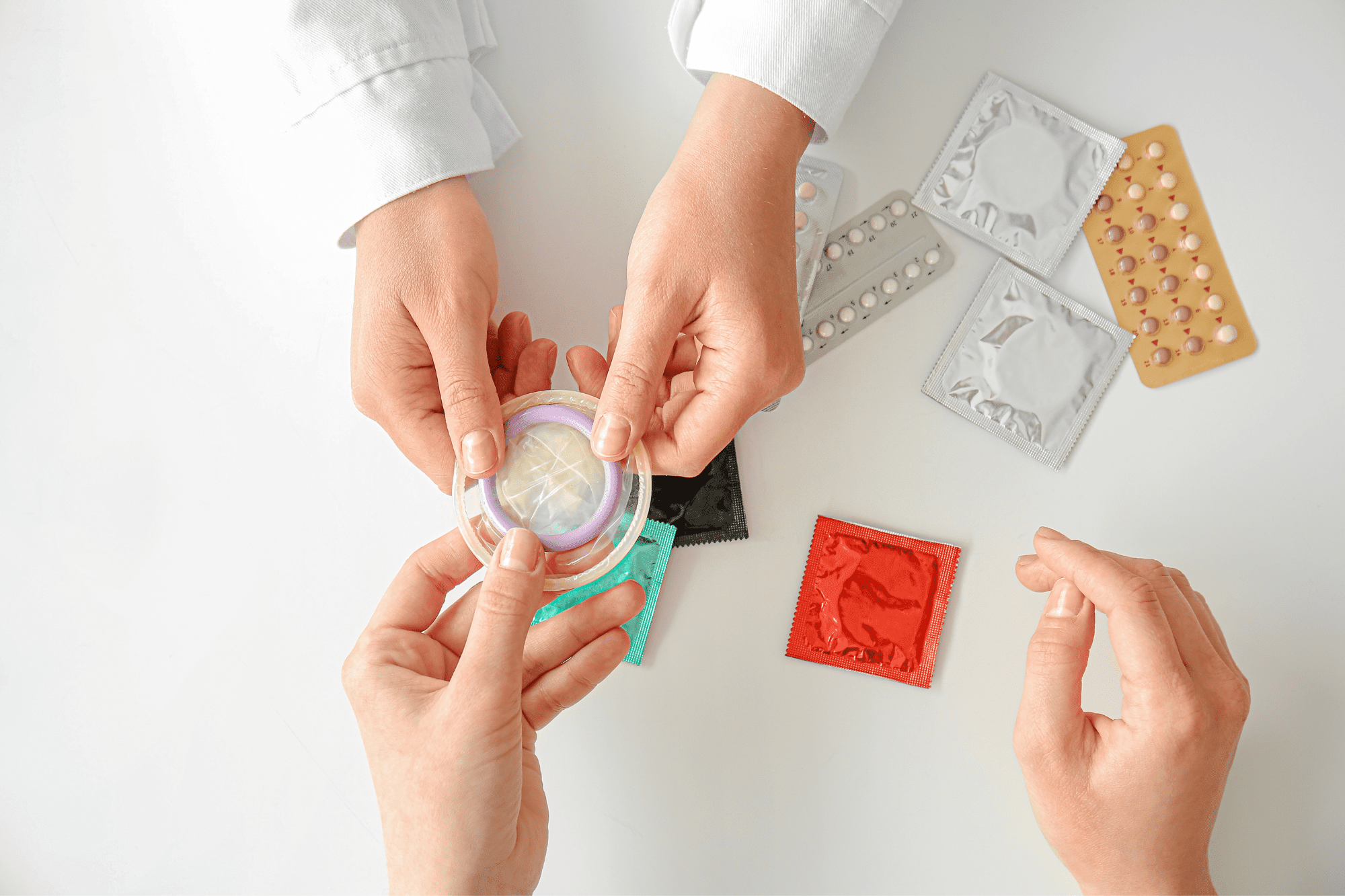You might be surprised to hear that contraceptives don’t always prevent pregnancy.
After all, isn’t that the whole point of using birth control, condoms, and IUDs?
Though contraceptives aren’t always reliable, there are ways to prevent pregnancy with better results. Use this blog to learn how often contraception fails and more effective ways to avoid an unwanted pregnancy.

Is contraception always effective?
Unfortunately, no. Contraception does prevent some pregnancies, but it doesn’t work 100% of the time.
That means that you’re rolling the dice and risking getting pregnant every time you have sex, even with protection.
More importantly, there’s no way to know when the contraceptive will fail. For instance, even if only 1 out of 100 women get pregnant with an IUD statistically, your IUD may fail to prevent pregnancy the very next time you have sex. It may not be likely, but it is possible.
This unreliability begs the question: If your birth control fails the next time you have sex, are you prepared to handle the pregnancy?
What are the failure rates for contraceptives?
The Centers for Disease Control and Prevention (CDC) offers the typical use failure rate for each kind of contraceptive. “Typical use” means the way most people use birth control. This may include occasionally missing doses or using the device incorrectly.
Since typical use is a more realistic way to measure effectiveness than perfect clinical use, this is the best way to understand your risk.
Failure rates for common contraceptives include:
- Intrauterine devices: 0.1-0.8%
- Birth control implant: 0.1%
- Birth control shot: 4%
- Birth control pills: 7%
- Birth control patch: 7%
- Vaginal contraceptive ring: 7%
- Diaphragm/cervical cap: 17%
- Sponge: 14-27%
- Male condom: 13%
- Female condom: 21%
- Spermicide: 21%
- Fertility tracking: 2-23%

How can I prevent an unplanned pregnancy?
You can’t rely on birth control to prevent pregnancy, but you can prevent pregnancies you aren’t prepared for. We’ve outlined the best ways to do so below.
Practice abstinence
We know, we know. Abstinence isn’t a popular option.
It is, however, the best way to prevent pregnancy from a medical standpoint. Put simply, you can’t get pregnant if you don’t have sex.
Abstinence has additional benefits, such as protecting you from sexually transmitted diseases/infections (STD/STI). These infections are only passed through fluids and vaginal, oral, and anal contact. If you don’t have sexual contact, you can protect your sexual health.
That said, we understand that some sexual encounters aren’t consensual. You are not worth less because of your assaulter’s actions or responsible for his violence.
If you think you are pregnant because of a sexual assault, make an appointment to get the care and resources you need to start healing.
You can also reach out to the National Sexual Assault Hotline at 1-800-656-4673 to get counseling, aid, and advice.

Only have sex with a committed partner
More specifically, only have sex with someone who is prepared for a potential pregnancy.
Remember, you can get pregnant every time you have sex, even with contraception. For your mental and physical well-being, as well as your future plans, make sure your partner is willing to stand by you and support you if you get pregnant.
That starts with an honest conversation. Before sleeping with any partner, casual or committed, discuss the possibility of pregnancy with him. Ask him what he would do if you got pregnant. See if he is willing to partner with you financially, relationally, and emotionally through any decision you make about your potential pregnancy.
This way, even if you do get pregnant, you know that you’re both on the same page. It also ensures that you’re ready to make a plan for any situation that may arise.
What if I’m already pregnant?
You’ve come to the right place.
Thrive Orlando offers the medical services and resources you need to plan your next steps. After confirming your pregnancy with a medical-grade pregnancy test, you can get an ultrasound and STD testing and treatment.
Best of all, our services are confidential and completely free.
During your appointment, you can also talk with a licensed nurse about your concerns and questions. She’ll walk you through your pregnancy options, providing local resources and information for each.
No matter your situation, you will never feel judgment or shame at our clinic. We’re here for you, with support and a compassionate, listening ear.

